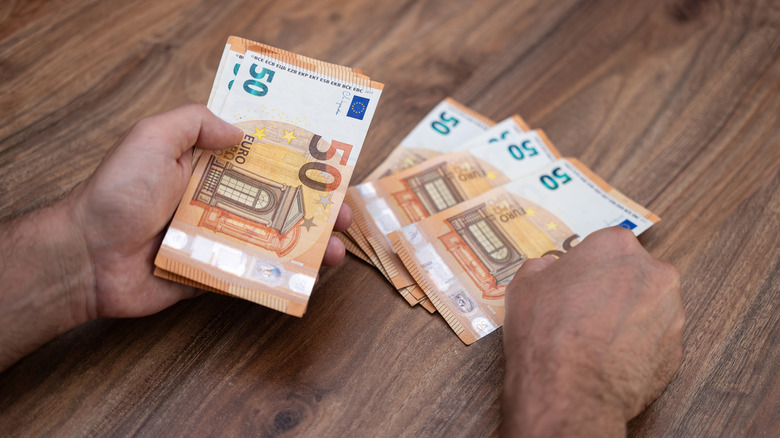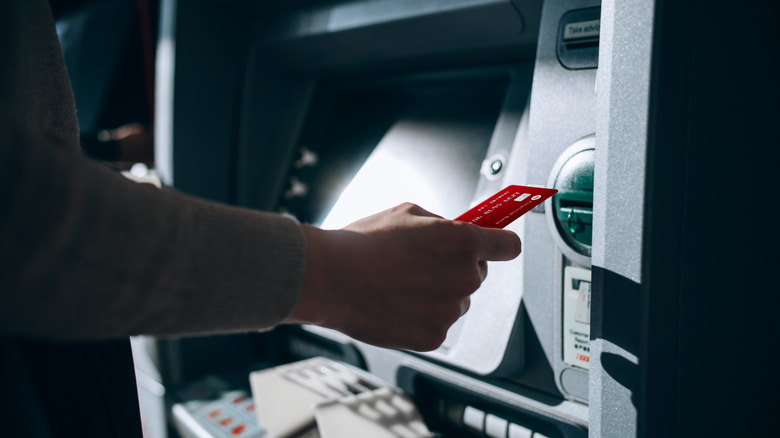Rick Steves Reveals Why Tourists Shouldn't Abandon Cash For A Credit Card While In Europe
Society is quickly becoming cashless. With a swipe of a card, a click of a button, a tap of your phone — or even a scan of your palm — you could, theoretically, go weeks without needing cold, hard currency. However, when traveling in Europe, you may want to reconsider relying solely on your credit cards, at least, according to travel expert Rick Steves, who recommends that travelers always carry cash.
Steves has spent a lot of time in Europe and has plenty of advice on the best way to navigate different elements of travel — from leaving your debit card at home to the best ways to avoid credit card fees. But if there's one lesson he emphasizes, it's to always be prepared. That is why, despite our modern inclination to use digital apps and credit cards, there are several reasons why you'll always want to have cash on hand, particularly in Europe.
While many major credit cards — especially Visa and MasterCard — are widely accepted at large chains, car rental companies, and hotels, merchants have to pay commissions to credit card networks. Thus, many small European businesses often don't accept credit cards, or they may offer discounts for paying in cash. Bus fares, mom and pop shops, bed-and-breakfasts, tour guides, street vendors, and tips can all be difficult to pay for with a credit card — in fact, it might be impossible. To avoid the awkwardness of finishing your meal only to be unable to pay for it — or being turned away from a bus — always carry local currency. "Remember, you're on vacation," Steves wrote on his website. "Don't get stressed about money in Europe; just spend it wisely."
Steves prefers using ATMs over currency exchange booths
This is what Rick Steves does when he travels to Europe: When booking flights and hotels online before he goes, he uses a credit card. But as soon as he lands in whatever country he's visiting, he heads directly to the ATM at the airport and pulls out some cash to tuck into his money belt (one of Steves' tips for avoiding pickpockets). Throughout the trip, he uses cash as his primary mode of spending, and keeps his credit cards packed away (he recommends having credit cards for things like car rentals and rental insurance coverage). He also notes that he may end up using his credit card toward the end of the trip to avoid withdrawing more cash.
Steves doesn't exchange money at the currency exchange desks, though. ATMs are a cost-effective way to get cash while traveling abroad, not only because they're open 24 hours and conveniently located, but also because U.S. banks often work with banks and ATM operators overseas to reduce or remove transaction fees. You'll also typically get the fairest global currency exchange rate. Steves recommends calling your bank before you travel to see which ATMs they work with. Once you arrive, how much money you withdraw will depend on the country and what your itinerary entails.
Additionally, your credit card is a virtual database and a lifeline to your financial worth. Steves notes that the less you whip that card out, the lower your risk of fraud or identity theft. Steves says that for him, it's all about "maximizing ease and minimizing fees." When you're on a trip, you're already spending money every time you take a step. Why not cut those costs where you can, without cutting the luxury?

